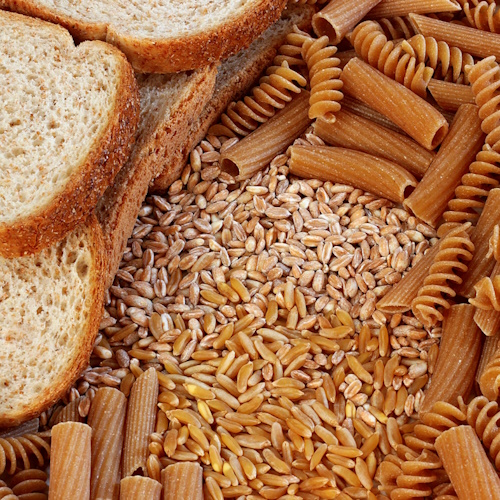Ageing is a privilege. But living longer is not the same as living well. Around the globe, more people are reaching their 70s, 80s, and beyond. Yet the number of years spent in good health is not keeping up. Frailty, impaired movement, and mental health struggles increasingly affect the elderly. What if the secret to ageing better—not just ageing longer—was sitting on your plate all along?
A new study published in The American Journal of Clinical Nutrition offers fresh hope. It explores how certain foods, specifically those rich in flavonoids, could reduce some of ageing’s harshest outcomes. Drawing data from two massive studies that spanned decades, the research paints a powerful picture. It suggests that dietary choices made at midlife may protect physical strength and mental wellbeing far into the future.
This is more than a story about nutrients. It is about how daily food habits, even modest ones, can shape the last chapters of life.
Understanding Flavonoids and Their Promise
Flavonoids are natural compounds found in plant-based foods and drinks. Researchers have long studied them for their antioxidant, anti-inflammatory, and even brain-protective effects. They are found in everyday items like tea, berries, citrus fruits, apples, red wine, and dark chocolate.
These compounds may reduce molecular damage, support circulation, and protect neurons. That makes them excellent candidates for fighting the three common signs of unhealthy ageing: frailty, physical limitations, and poor mental health. But until now, large-scale evidence connecting flavonoid intake to these specific outcomes has been scarce.
To address this, scientists created a flavodiet score. This metric combined data on the intake of key flavonoid-rich foods and beverages. Using it, they tracked how dietary habits influenced ageing outcomes over time in older men and women.
A Landmark Study Spanning Decades
The study used data from two well-established health cohorts: the Nurses’ Health Study (NHS) and the Health Professionals Follow-up Study (HPFS). Together, they included over 86,000 participants aged 60 and above. The NHS followed 62,743 women from 1990 to 2014. The HPFS followed 23,687 men from 2006 to 2018.
Participants completed detailed food frequency questionnaires every four years. These captured their intake of flavonoid-rich foods like tea, red wine, apples, blueberries, strawberries, oranges, and grapefruit. The researchers monitored who developed signs of frailty, lost physical function, or reported poor mental health over the years.
Importantly, this was not just a snapshot in time. The researchers adjusted the scores and exposures as dietary habits changed. That allowed them to assess not just long-term diet, but also the effect of dietary improvements or declines across the years.
Women Benefit Most From a Flavonoid-Rich Diet
Among women in the NHS, the benefits were clear and consistent. Those with the highest flavodiet scores had a 15 percent lower risk of becoming frail. They also had a 12 percent lower risk of losing physical function and another 12 percent lower risk of developing poor mental health.
These results held true even after accounting for other factors like smoking, body weight, physical activity, and overall calorie intake. Increasing the flavodiet score by just three servings per day reduced risk further—by 6 to 11 percent across the three outcomes.
Notably, higher intakes of individual foods like tea, apples, blueberries, oranges, and moderate red wine also correlated with better outcomes. A half-serving more per day of blueberries reduced frailty risk by 12 percent. A similar increase in strawberries lowered mental health risks by 12 percent.
The Results for Men Show Promise, But Less Consistency
For men in the HPFS, the picture was more complex. While fewer associations were statistically significant, some patterns emerged. The highest flavodiet scores were linked to a 15 percent lower risk of poor mental health. Tea and blueberries also appeared protective for men, especially when consumed consistently over time.
Why the sex differences? Researchers offered a few theories. First, the women were followed for twice as long as the men, which gave more data and power to detect links. Second, women in this study had higher smoking rates than the men. Flavonoids may be especially helpful in offsetting smoking-related damage.
Another explanation could lie in biology. Hormonal differences, metabolism, and genetic pathways may influence how the body responds to flavonoids. These gender-specific patterns raise the need for tailored dietary guidance in ageing populations.
Physical Function and Diet: What the Data Show
Impaired movement and loss of strength can strip independence from older adults. This study found encouraging results for women who consumed more flavonoid-rich foods. Those who upped their intake of red wine, apples, and oranges over time were less likely to lose physical ability.
This builds on earlier trials showing that flavonoids can increase muscle mass and mobility. In one randomized trial, cocoa flavonoids helped older adults walk faster and move with more ease. Another study showed that red wine polyphenols improved physical endurance in ageing rats.
Among men, the link was weaker but still present in certain groups. Moderate intake of flavan-3-ol polymers—found in tea and chocolate—was tied to a 12 percent lower risk of impaired function.
Frailty Reduction: A Powerful Case for Midlife Diet Change
Frailty is more than tiredness or weakness. It predicts disability, hospitalization, and death. In this study, women who increased their intake of blueberries, apples, and red wine in midlife reduced their risk of frailty years later.
On the other hand, women who drastically cut flavonoid-rich foods—by seven servings per week—saw their risk of frailty jump by 18 percent. The message is clear. Positive dietary changes are protective. Negative changes come with a cost.
The data suggest that food quality—not just calorie count—can powerfully shape later life outcomes. And that change is possible even after age 60.
Flavonoids May Also Support Mental Resilience
Poor mental health is common in older adults and often goes unrecognized. This study supports growing evidence that flavonoids could play a role in reducing depression and related symptoms.
Among women, those with high and increasing intakes of apples, strawberries, and citrus fruits had lower mental health risk. In men, moderate red wine and high tea consumption were both protective. These effects are likely due to flavonoids' influence on brain inflammation, circulation, and neurotransmitter balance.
Tea, in particular, has drawn attention. Its polyphenols may help regulate mood through multiple pathways. Previous meta-analyses have found that flavonoid intake is linked with lower depression risk. This study adds to the case for dietary strategies as tools in mental health promotion.
The Bigger Picture: Diet as a Tool for Healthy Ageing
This study is not without its limitations. The results are based on self-reported food and health data. The sample was predominantly White. Also, flavonoid-rich foods contain other nutrients, so some benefits might stem from other compounds.
Still, the findings are robust and well-controlled. They suggest that a simple daily habit—adding a few servings of specific foods—can help preserve health and independence in older age.
For public health, this could be transformative. Encouraging middle-aged adults to eat more flavonoid-rich foods could ease the burden of age-related decline. For individuals, it means more years spent walking, thinking clearly, and enjoying life.
Conclusion: Eat Now for the Life You Want Later
Healthy ageing does not depend on luck. It hinges on daily choices. This study shows that increasing intake of foods like tea, apples, berries, and red wine could make a real difference—especially for women.
The path to strength, mobility, and peace of mind in old age may start with what’s on your plate at lunch. A half-cup of blueberries, a warm mug of tea, or a glass of wine with dinner may do more than delight the senses. They may help ensure that the years ahead are not just long, but rich with life.
The study is published in the Journal of Clinical Nutrition. It was led by Aedín Cassidy from Queen’s University Belfast.






